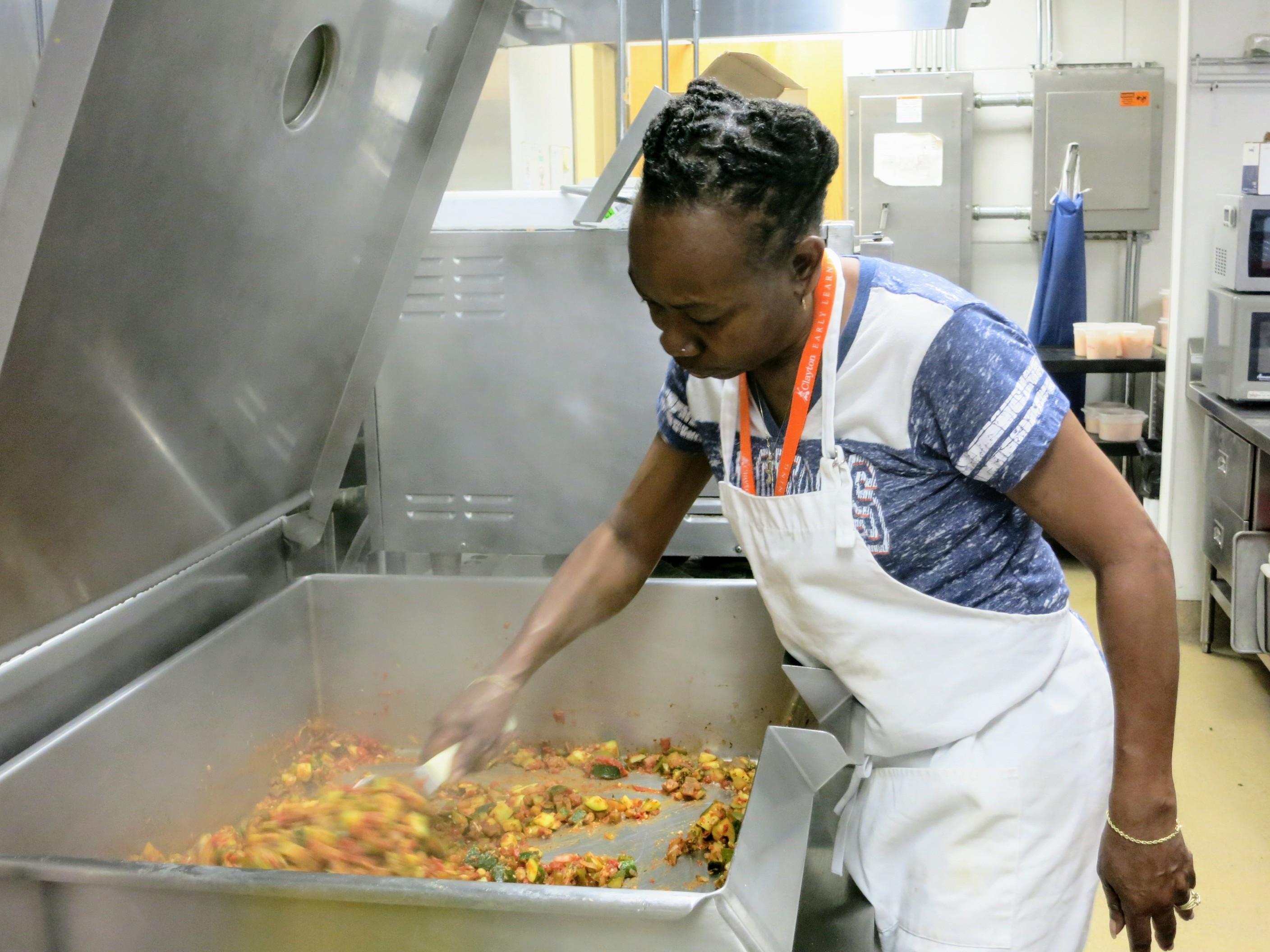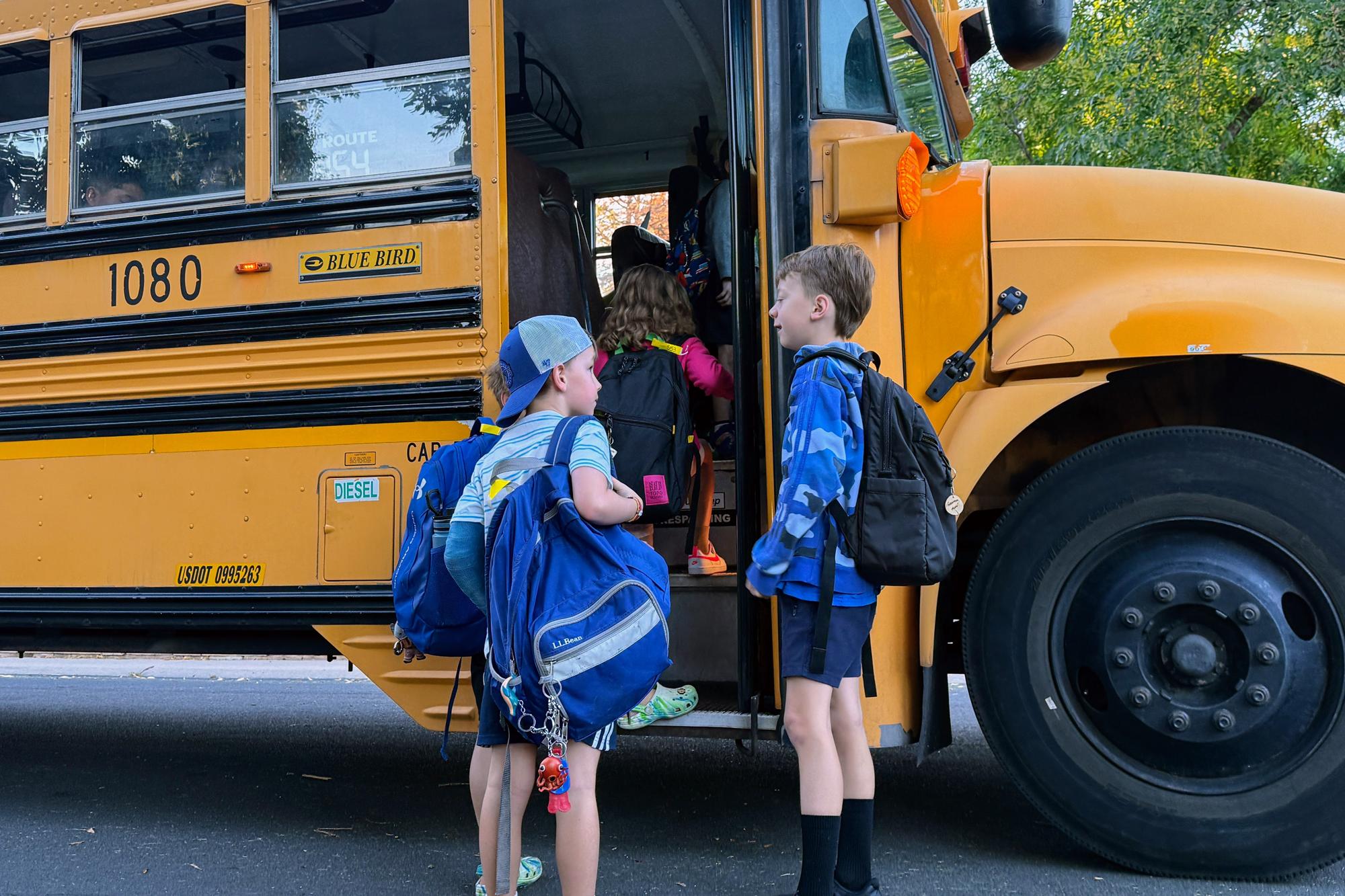What to make of a toddler being offered a fast food treat and asking instead for more of the kale and Brussels sprouts salad she had for school lunch?
Kristen Wilford-Adams has heard conversations like that in the halls of Clayton Early Learning, where she is the nutrition and wellness specialist. For her, they are evidence she is helping to raise tiny warriors for healthy eating.
"It's food justice," she said. "We believe that everybody, no matter what you do or where you come from, has the right to food and high quality education."
Clayton's educational programs are provided at low or no cost on a campus that was once home to an orphanage at the corner of Colorado and Martin Luther King Jr. boulevards. Most of the more than 300 students served by its MLK campus are from the neighborhood. Across Denver, according to city figures, one in five children and young people are food insecure -- which means they can't reliably access enough to eat -- and one in three children are either overweight or obese.
"We believe that health and nutrition is part of that foundation for school success," Wilford-Adams said. "If a child is hungry ... they're not able to learn."
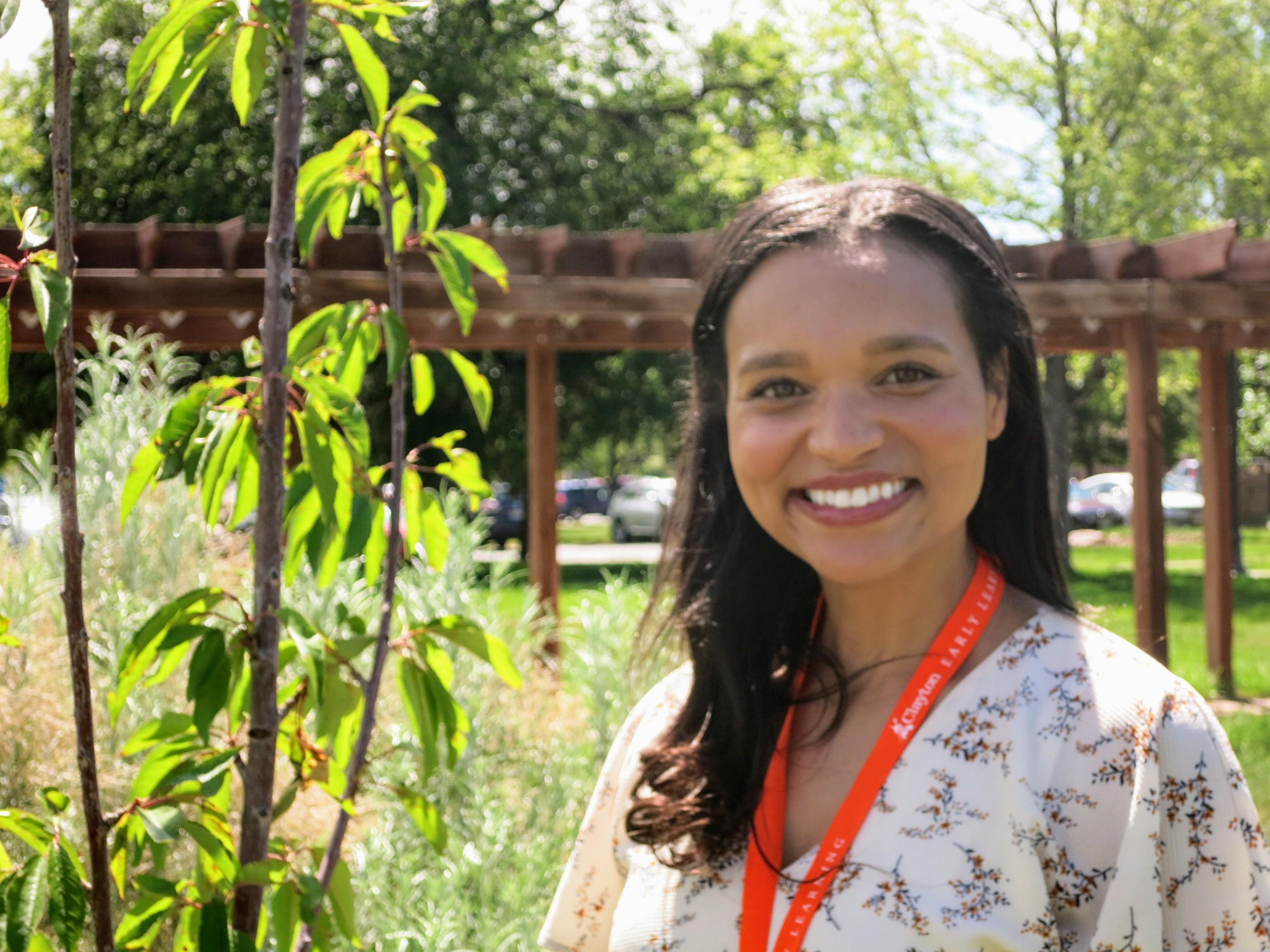
The communities surrounding Clayton's campus have a plethora of chicken and burger joints and convenience stores, but few markets offering fresh kale, Brussels sprouts and other produce. Clayton helps fill the gap with its own gardens, where its students take part in raising food while learning to enjoy fresh tastes. Their teachers weave in lessons on where food comes from and in the natural sciences and math. Produce for the school's kitchen comes from the plots known as Moonbeam Gardens near the playgrounds of the school for under-fives.
"Our baby food is organic and scratch-made in house," Wilford-Adams said.
Herbs from the gardens add flavor to spa-style water in cisterns that look like fruit salads under glass. Every day, Wilford-Adams said, children "run to the hydration stations and say, 'What's in it today?"
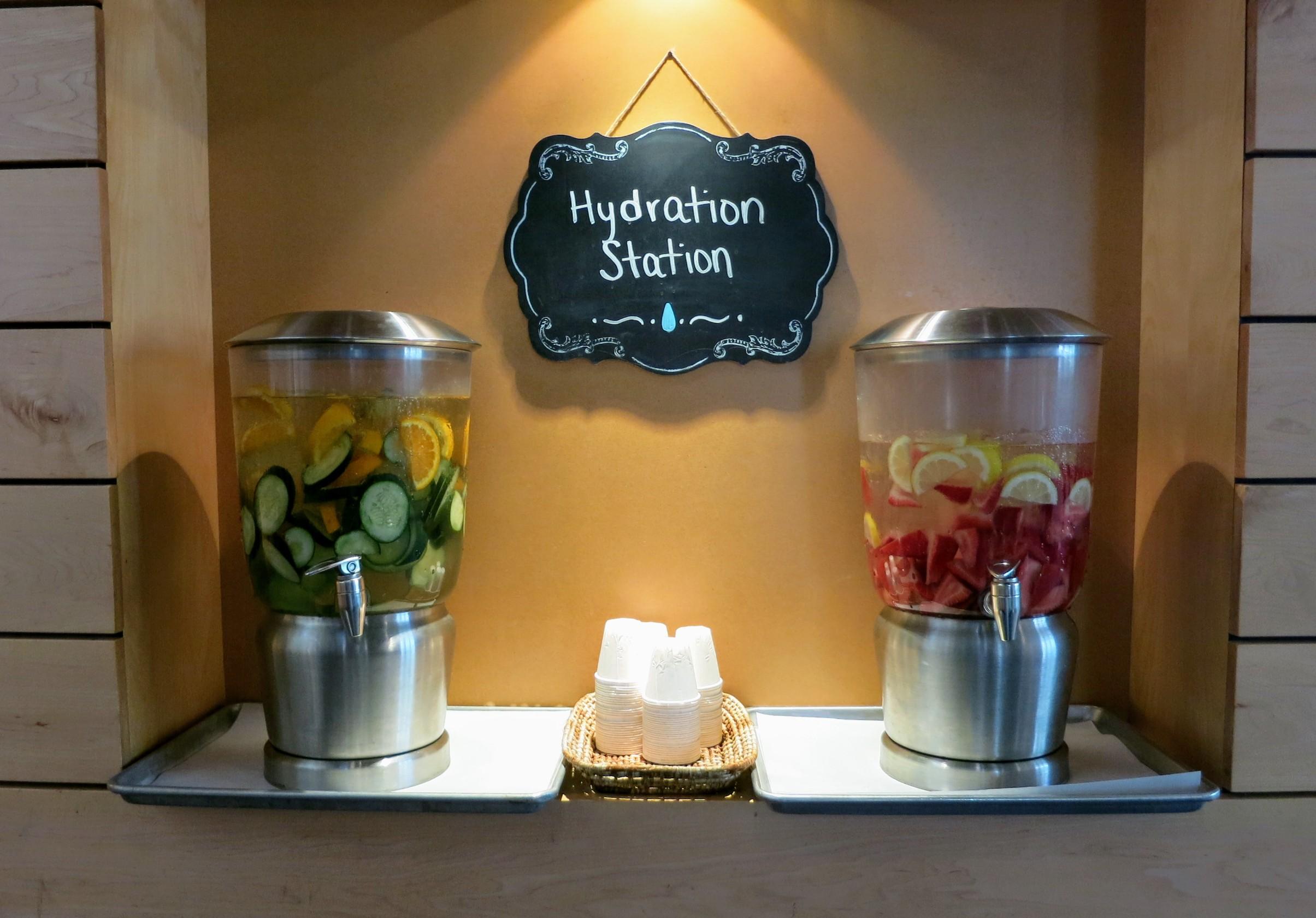
The vegetable gardens, installed and maintained with help from Designscapes Colorado and Hardy Boy Plants, have been a feature at Clayton for several years. This spring the school branched out, planting a small orchard of apricot, apple, pear and plum trees.
Wilford-Adams said kids pushed for the orchard they helped plant.
"It really came from the children's enquiry and learning," she said. "Kids are constantly asking, "Do we have this in the garden? Do we have that in the garden?"
The sounds of children playing could be heard from where she sat at a picnic table near raised Moonbeam beds of slightly hail-battered lettuce, cucumbers, broccoli, tomatoes, peppers, spinach, rosemary, sage, basil, mint. And four kinds of kale.
"Green smoothies are part of who we are," Wilford-Adams said of what was clearly a personal favorite crop.
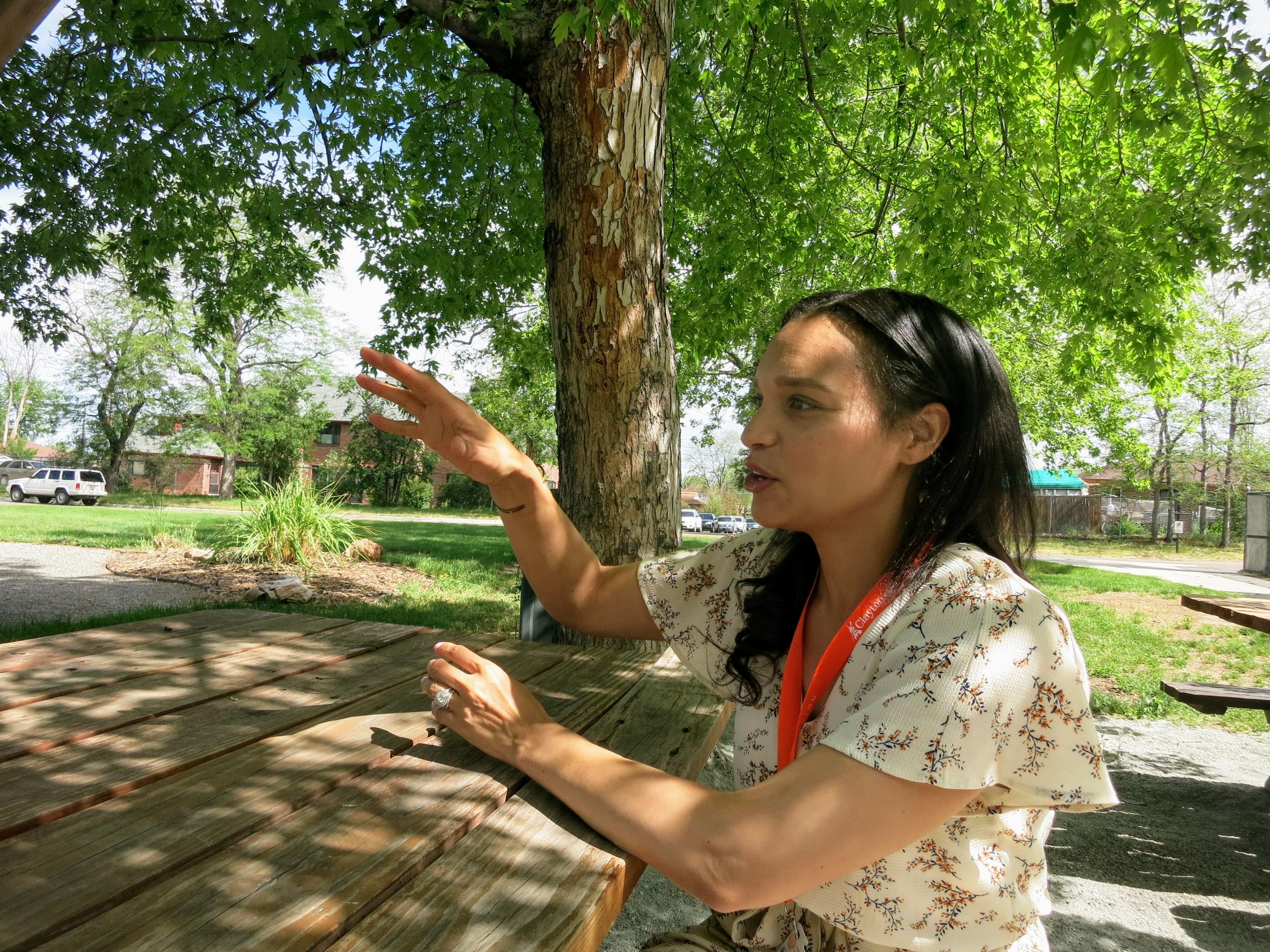
Wilford-Adams said Clayton teachers are alert to the sometimes subtle signs of food insecurity, such as a child saving food to take home to a younger sibling. Wilford-Adams follows up, talking to parents about where they can find help, including Clayton's own food pantry.
The gardens were started out of concern that, while the school chef was preparing healthy lunches and snacks, "we didn't know what was happening at home and in the greater community," Wilford-Adams said. In an area where districts are taking free and reduced school lunches to children during the summer, Clayton's food pantry is open year-round. Most of its programs are year-round as well, and families on a nine-months-of-the-year schedule can access food whenever they need it.
In addition to making it to the knee-high tables in the toddler classrooms and elsewhere on campus, garden produce is distributed to families and neighbors at an informal free farmers market. The market is about to take on a more formal look thanks to stalls Designscapes is building for the school.
Also coming is a cookbook. Wilford-Adams said parents often ask for recipes from the school's chef and increasingly share their own recipes.
Rebecca Moboung's children went to Clayton. She's a kitchen aide at the school. She said her children, the youngest in her teens now, grew up to love healthy food.
The students go home with knowledge about gardening, including what they can grow on a windowsill or even under the kitchen sink, where potatoes can flourish.
"Food is power," Wilford-Adams said.

